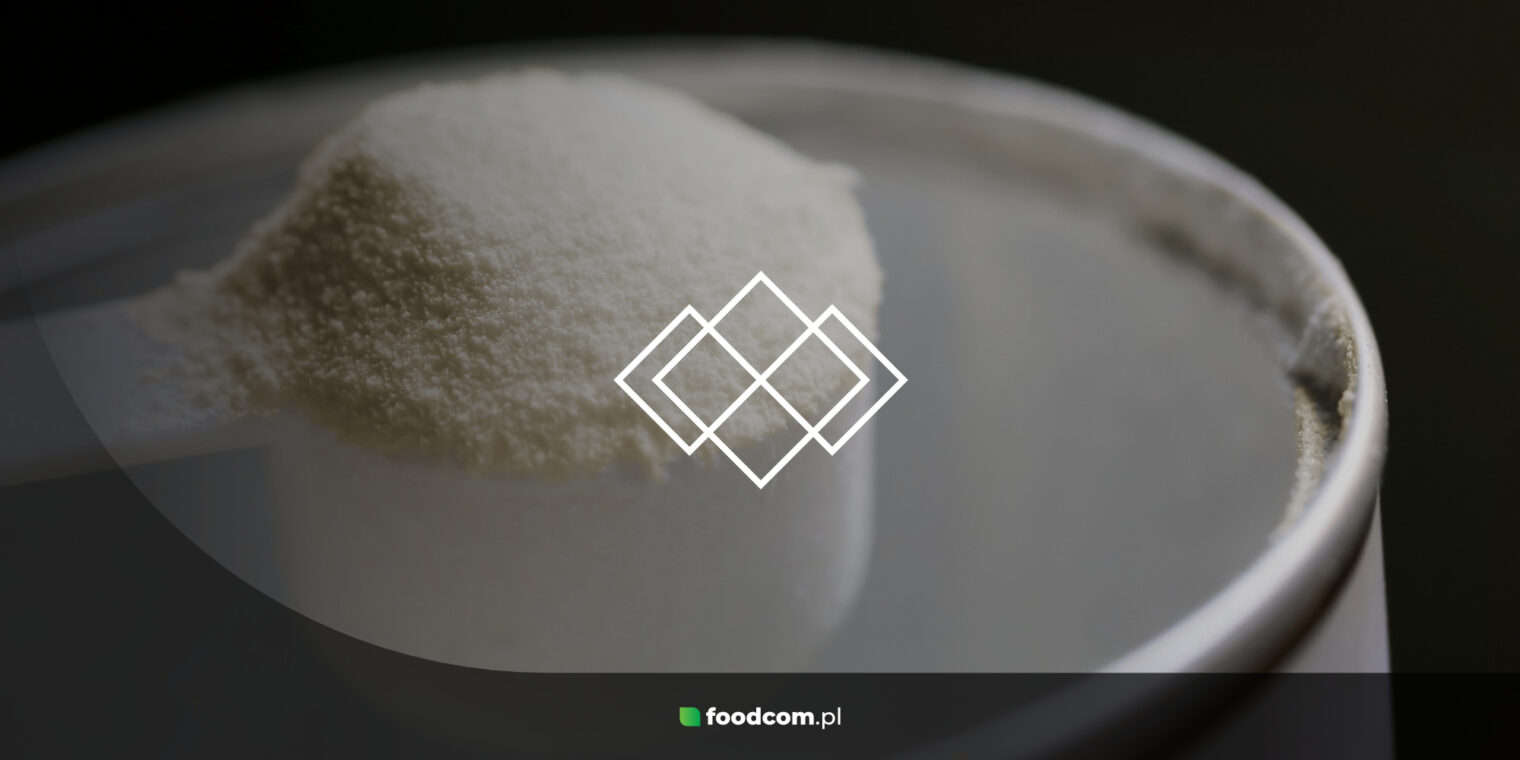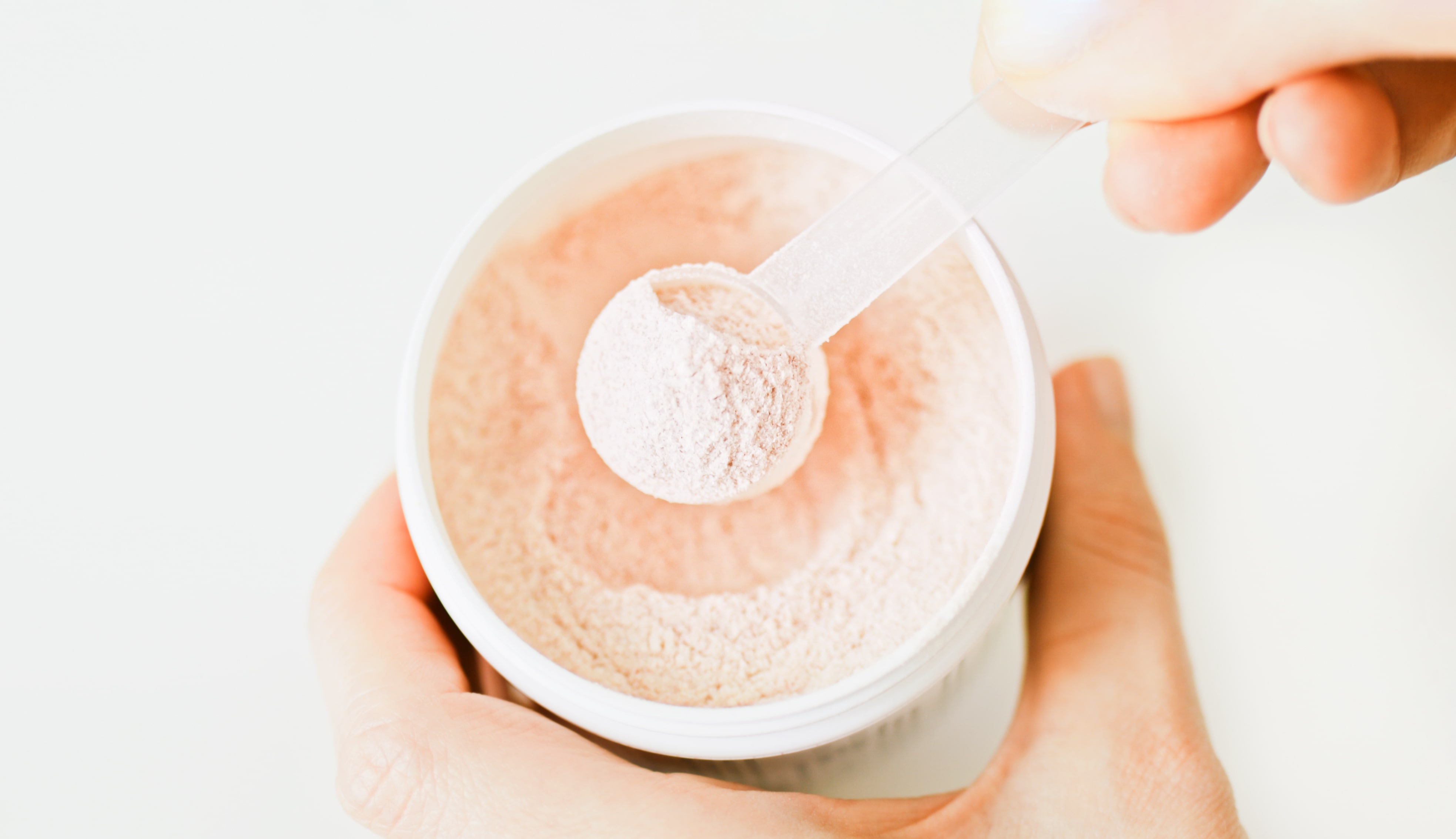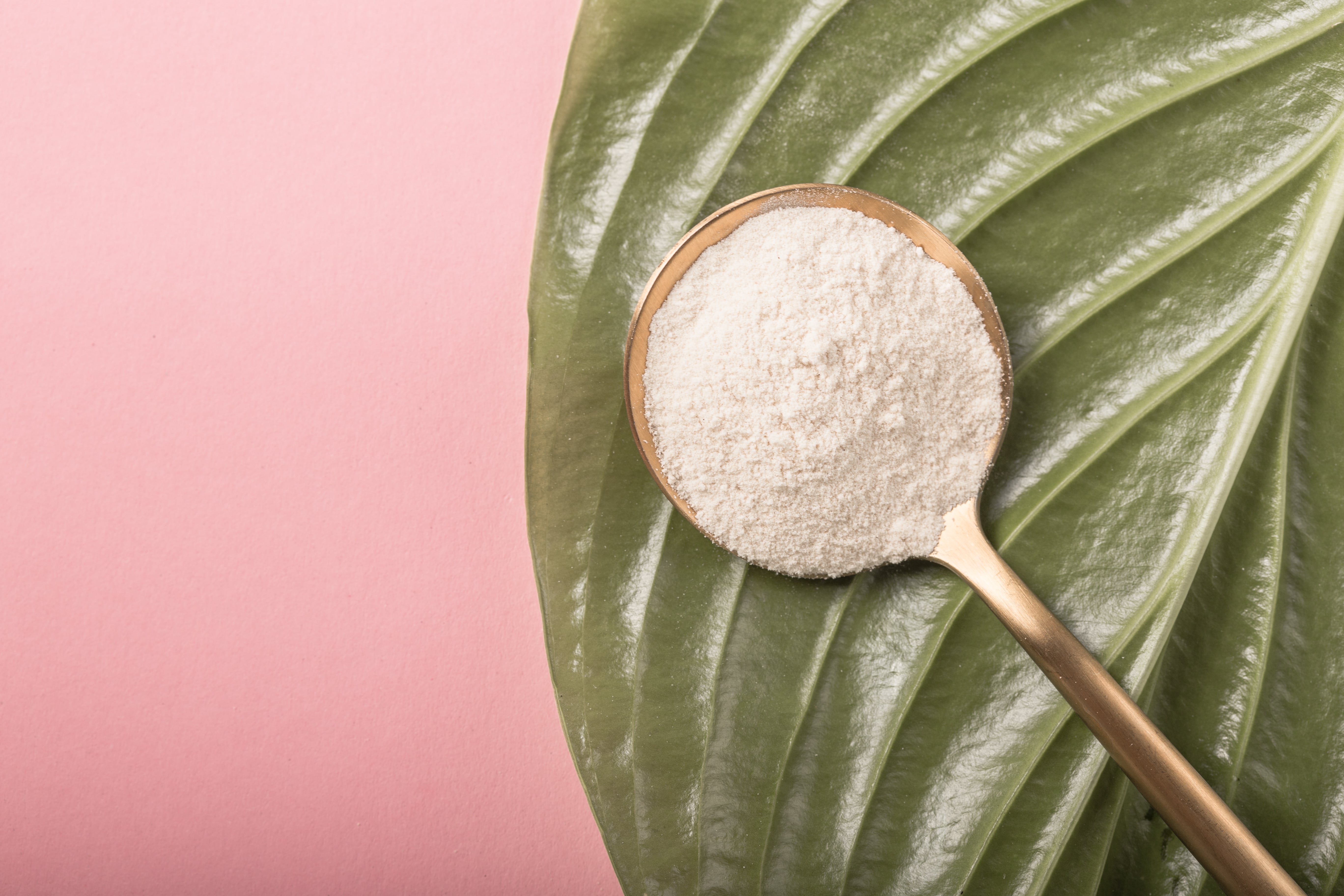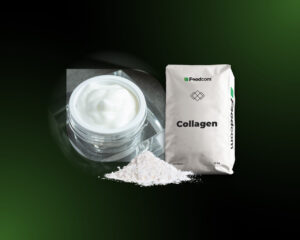- Collagen is a key structural protein in animal organisms, essential for maintaining tissue integrity and elasticity.
- It is widely used in the cosmetic and medical industries, especially in skin care, wound healing and tissue regeneration.
- Collagen is used, among other things, in anti-ageing cosmetics, aesthetic medicine and implant materials.
Collagen is one of the most important structural proteins in animal organisms, including humans. It forms the foundation of tissues, responsible for their elasticity, strength and integrity. It is naturally present in the skin, bones and tendons. In industry, it is widely used in cosmetics and medicine.
What is collagen?
Collagen is a basic structural protein found in animal organisms. It accounts for up to 30% of all proteins present in the human body. It is mainly found in the skin, bones, cartilage, tendons, blood vessels and the corneas of the eyes. It is a fibrillar protein, composed of three polypeptide chains twisted into a characteristic triple helix. This structure gives collagen its unique mechanical strength and elasticity.
There are at least 28 types of collagen, the most important of which are:
- type I – dominant in the skin, tendons, bones and ligaments;
- type II – found in cartilage;
- type III – present in the dermis and blood vessels;
- type IV – present in basement membranes, important for organ structures.
The role of collagen in the human body
Collagen performs various important functions in the body:
- it gives tissues hardness, elasticity and mechanical strength and maintains their proper structure – thanks to the fact that collagen proteins fill the intercellular spaces;
- it participates in blood clotting processes – it supports wound healing and the body’s defence against pathogens and toxins;
- it moisturises the joints, delaying the process of degeneration;
- it participates in metabolic processes, e.g. the conversion of glucose into energy, which promotes weight loss;
- it maintains smooth, supple and moisturised skin;
- it participates in regenerative processes such as wound healing, bone fracture healing and scar formation.
With age, the natural synthesis and regeneration of collagen in the body decreases, leading to loss of skin firmness, deterioration of joints and an increased risk of injury. Many people are looking for sources to supplement it, which is why collagen is becoming increasingly important in industrial applications. The source of collagen for these purposes is usually the skin, tendons and bones of cattle, pigs and fish.
Properties of collagen
Collagen is characterised by a unique combination of physical and chemical properties that determine its wide range of applications. These include, in particular:
- elasticity and mechanical strength – enables the formation of structures resistant to stretching;
- biocompatibility with human tissues – it does not cause an immune response, making it ideal for use in implantology and regenerative medicine;
- ability to form gels and membranes – thanks to which it can be used in cosmetics and as a drug carrier;
- film-forming properties – collagen forms a protective layer on the skin’s surface that retains moisture and improves the condition of the epidermis;
- participation in biological processes involved in regeneration – collagen supports wound healing, angiogenesis (the formation of blood vessels) and cell renewal.
The use of collagen in cosmetics
In cosmetology, collagen is an active ingredient in skin care products, especially in anti-ageing products. Its action in cosmetics is mainly based on the formation of a protective film, which:
- affects skin hydration by retaining water in the skin – reduces transepidermal water loss (TEWL), inhibiting the skin ageing process;
- protects against external factors such as pollution, pathogens and UV radiation;
- smoothes and softens the epidermis, improving its structure.
Collagen is used as an ingredient in face creams, lotions, serums, face masks and cosmetics for body, hair and nail care. Hair and nails treated with collagen become more elastic, moisturised and less prone to breakage.
Fish collagen, due to its lower molecular weight, better solubility and anti-inflammatory properties, is particularly valued in dermocosmetics. It can be found, among others, in preparations for acne, scars, couperose skin and in products supporting regeneration after dermatological treatments or sunburn.
Collagen in medicine
Medicine uses collagen in many ways, including surgery, orthopaedics and aesthetic medicine.
1. Aesthetic medicine
Collagen is used in aesthetic medicine as a natural tissue filler. It is used in treatments to reduce wrinkles, furrows and loss of skin volume. It improves skin firmness and density, increases its tension, gives the effect of local reduction of fat tissue or cellulite, and when administered to the dermis, it stimulates fibroblasts to produce new endogenous collagen.
2. Regenerative medicine
Collagen implants, matrices and membranes are used in soft tissue and bone reconstruction processes.
Collagen is used in the treatment of, among others:
- chronic wounds (e.g. bedsores, ulcers),
- fractures and bone defects (e.g. in dental surgery),
- tendon and ligament injuries,
- corneal damage,
- vocal cord regeneration.
3. Drug delivery systems (DDS)
Thanks to its high biocompatibility and low immunogenicity, collagen is an excellent base for the design of advanced drug delivery systems (DDS).
In the form of nanoparticles, microgranules, hydrogels, films or biodegradable implants, it enables the controlled, localised and prolonged release of active drug substances without side effects throughout the body. Collagen is also used to produce sponges and compresses for the treatment of burns and extensive wounds. It is also used to manufacture surgical sutures.
4. Latest developments in medicine
Medicine continues to advance, and one of the most interesting areas of development appears to be tissue engineering. In this context, collagen is used to build 3D scaffolds in which drugs, growth factors or cells can be placed to support tissue regeneration and repair processes.
Another achievement of personalised medicine and targeted therapy may be the use of collagen for the precise delivery of cytostatic drugs to cancer cells, which is much less harmful than traditional chemotherapy.
Collagen in the food industry and dietary supplements
In the food industry, collagen enriches the texture of products and thickens them. It is a key ingredient in jellies, jellies, as well as sausages and cold cuts, where it improves the structure and moisture content of products.
Collagen is also an ingredient in dietary supplements intended for:
- athletes,
- people with joint and bone problems,
- people recovering from injuries,
- those who want to improve the firmness of their skin.
Dietary supplements may contain both collagen and its hydrolysates – more easily digestible amino acids that make up collagen. The preparations often contain supporting substances such as coenzyme Q10, hyaluronic acid or vitamins. Collagen is available in various forms:
- drinks,
- tablets or capsules,
- powder for making gel,
- freeze-dried form,
- ampoules for intra- or intra-articular injection.
What to look for when choosing collagen?
Collagen is not only of interest to cosmetics companies, but also to those working at the intersection of biotechnology, pharmacy and materials science. Collagen for the B2B segment can be offered in various forms, such as hydrolysate, peptides or collagen gelatin.
In addition to the form, when choosing a product, it is worth paying attention to whether the collagen:
- has excellent microbiological purity;
- has high solubility,
- retains its properties for at least 24 months,
- comes from verified sources, including fish, cattle and pork from certified farms,
- is available in the desired form and granulation.
For companies in the beauty and healthcare sectors, collagen is an innovative, effective and natural ingredient that undoubtedly contributes to the effectiveness of the final product. If you are looking for a proven collagen, find out more and visit the product card for Foodcom S.A. – collagen












